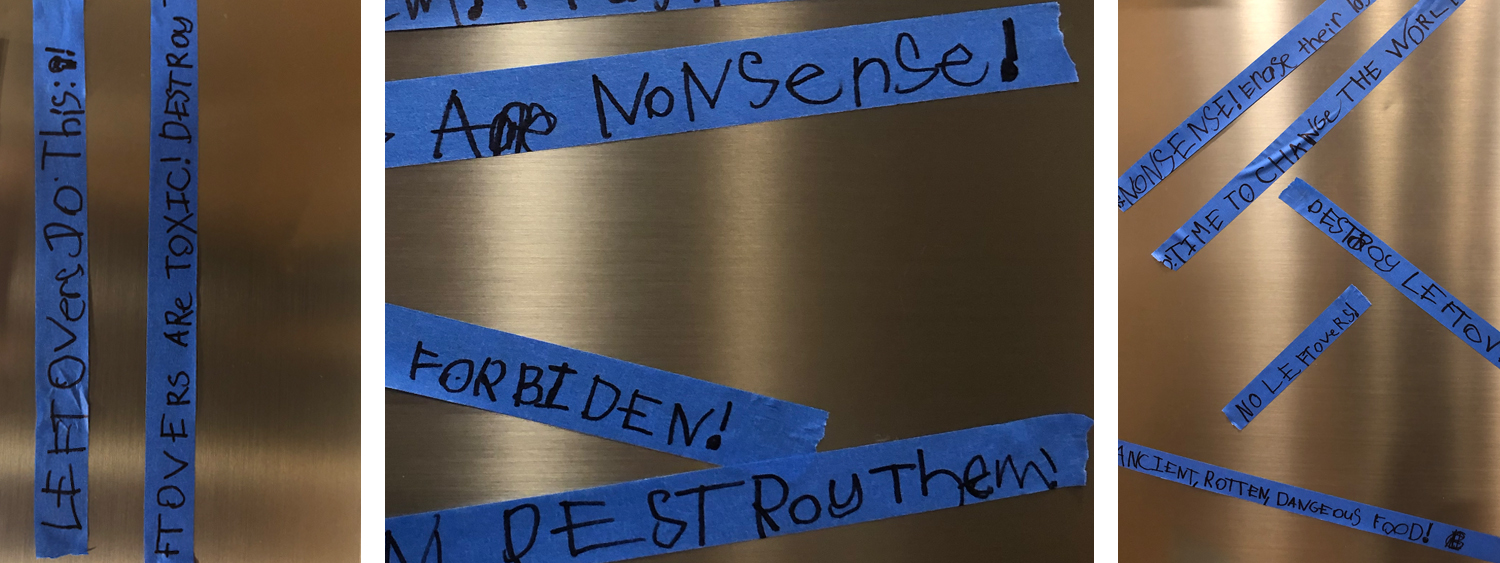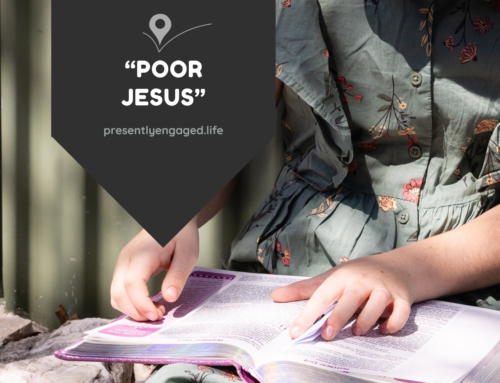I walked by our refrigerator to see blue painter’s tape swathed around the entire thing. Words festooned the front, written in an anonymous yet recognizable hand:
“Leftovers are bad!”
“Destroy leftovers!”
“Nasty, ancient, dangerous food!”
“Time to change the world!”

So now I think I know how a certain 9-year-old feels about leftovers.
This event created much hilarity across the house. We managed polls on how each resident feels about leftovers. We discussed which leftovers people thought of as favorites and which left something to be desired. Then we had a few opposition campaigns highlighting the merits of leftovers for a simple meal. And we shared exhortations: You get to take action on how you feel about leftovers when you become an active part of the cooking team.
Later, the signage came down and we all chuckled.
But I left one sign up on the fridge. Throughout the week, it has encouraged and challenged me as I glance at it while going about my work in the kitchen:
Leftovers are bad.
Am I offering my family leftovers, rather than making them my focus and priority? Do they know that I cherish them? Can they tell by how I listen to them, how I pay attention, how I engage in conversation, how I respond when it’s inconvenient, that they are important?
Or do they get the leftovers of my emotion, the leftovers of my task list, the leftovers of my life?
It is possible to have a day completely designed for and on behalf of someone, and still leave that person feeling like an excluded part of the day.
Am I saying that leftovers should never be offered on the menu? No. But I’m saying a menu that has variety, surprise, and intention nourishes best. And am I writing this because I have it all figured out? Absolutely not. I’m writing this because it’s hard for me too.
Leftovers are going to happen. Someone is going to get them. Let’s make them planned, purposeful, and maybe even yummy.
And for everything else, there’s ketchup.
“God is each virtue’s goal,
its impulse, and its crown.
He is its only why, reward,
and sole renown.”
—Angelus Silesius






